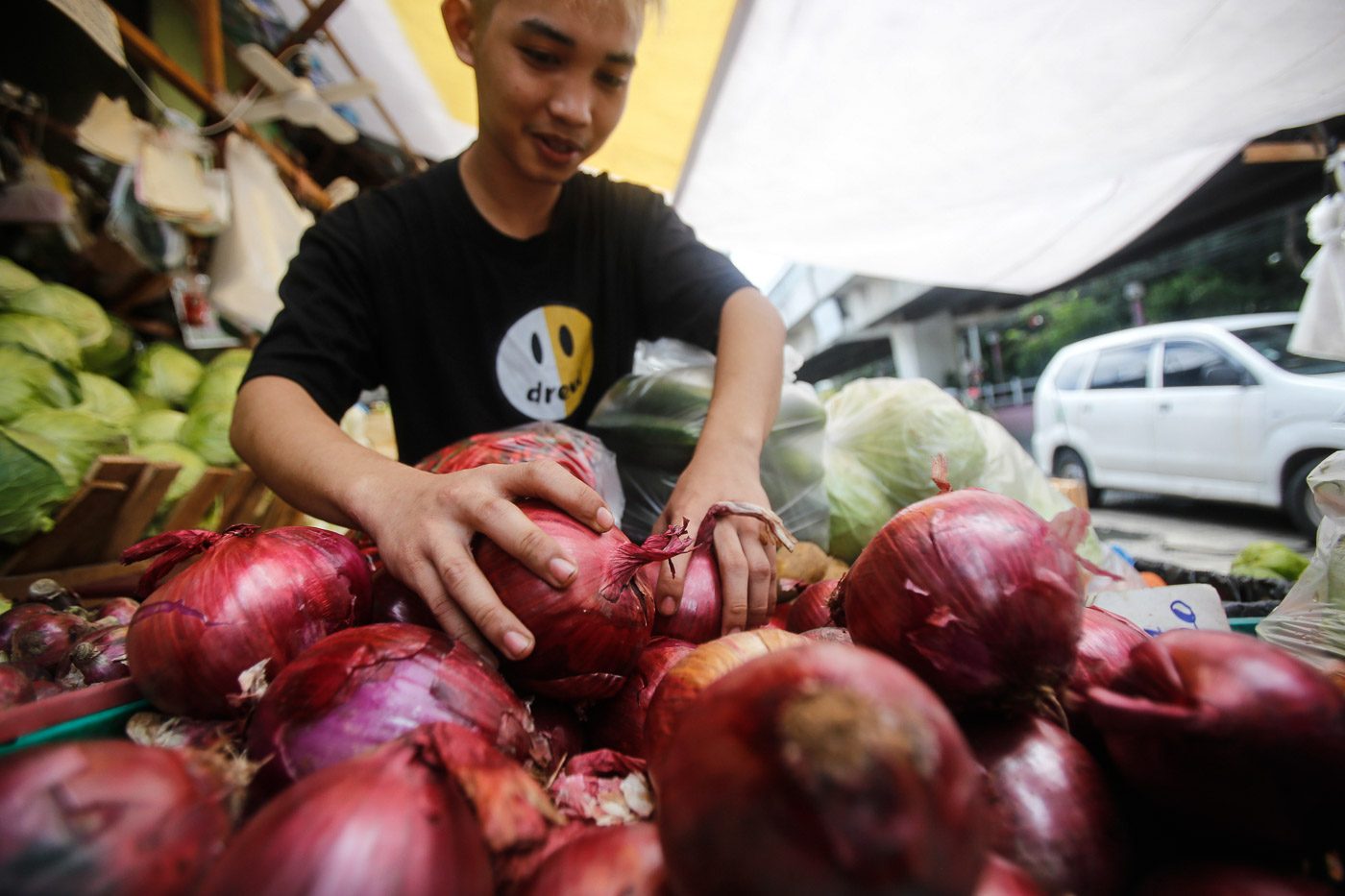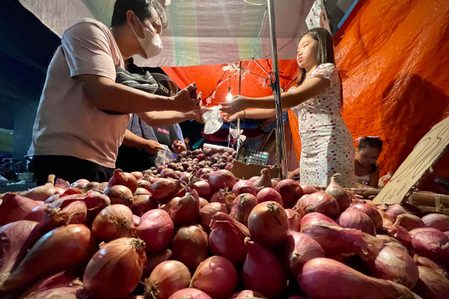SUMMARY
This is AI generated summarization, which may have errors. For context, always refer to the full article.

MANILA, Philippines – When a ranking agriculture official failed to explain the exorbitant price of onions at a House agriculture committee hearing on Wednesday, January 25, Marikina 2nd District Representative Stella Quimbo offered what many consider a plausible answer: cartels.
Quimbo – reacting to the presentation made by Department of Agriculture-Bureau of Plant Industry (DA-BPI) Director Glenn Panganiban – was puzzled by how onions in Philippine markets became among the world’s most expensive, when data from 2022 showed a modest shortage in supply.
The demand for red onions in 2022 was 363,937 metric tons, but the supply was only around 338,354 metric tons, according to the DA.
“As an economist, this is difficult to explain. I could only surmise that there is a mystery here, that there are behind-the-scenes operations that include cartels,” Quimbo said.
Panganiban did not dispute Quimbo’s statement, and even confirmed an instance when a stockpile of smuggled onions that police authorities were preparing to confiscate at a warehouse in Valenzuela went missing on the day of the raid.
“I cannot say if there is a cartel, but aside from the production and importation, there is someone controlling [the supply]. I’m not sure if that is how you call it,” Panganiban said.
“Ang sagot diyan e kartel talaga (The answer there really is cartel). That’s it. There just has to be artificial manipulation of prices because the market cannot explain why the prices were adjusted like that,” Quimbo asserted.
Quimbo also scolded Panganiban when he initially said that the BPI had yet to coordinate with the Philippine Competition Commission on the incident in Valenzuela. Panganiban later corrected his statement and said his agency had met with the PCC, which is only in the preliminary investigation phase.
Quimbo earlier filed a resolution seeking a probe into the alleged anti-competitive prices of onions in the market.
Based on the DA’s price monitoring data, local red onions were sold in markets for P480 to P600 per kilo, and white onions at around P450 to 600.
Such prices are 607% more costly than the international average which is $1.54 per kilo or around P84.87, based on the Global Product Prices database.
The DA, headed by President Ferdinand Marcos Jr., already approved the importation of 21,060 metric tons of onions to address the crisis, although the move is expected to hurt farmers, who would not be able to match the cheaper imports and would be forced to sell their products at a price that would yield low returns.
– Rappler.com
* Some quotes in Filipino were translated into English and shortened for brevity.
1 comment
How does this make you feel?






Sugar or onion, market is subject to manipulation by people who own warehouses…with a little coordination these warehouse owners can dictate price by holding the flow of supply…the perpetrators are not really difficult to identify is there is a “will” to identify them!